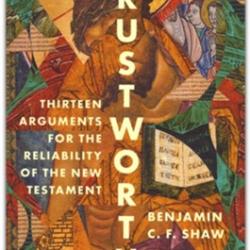 I'm very excited to have the opportunity to share this interview with all of my readers today. Over the past couple of years, Rebecca Buchanan—the editor of Eternal Haunted Summer and editor-in-chief of Bibliotheca Alexandrina—has been turning into quite a mover and shaker within Hellenismos, (the contemporary reconstruction of the religion of Hellenic religion. She's doing some fascinating work, not only within that particular community but within the greater Pagan and Heathen communities as well, and we'll be discussing some of her upcoming projects.
I'm very excited to have the opportunity to share this interview with all of my readers today. Over the past couple of years, Rebecca Buchanan—the editor of Eternal Haunted Summer and editor-in-chief of Bibliotheca Alexandrina—has been turning into quite a mover and shaker within Hellenismos, (the contemporary reconstruction of the religion of Hellenic religion. She's doing some fascinating work, not only within that particular community but within the greater Pagan and Heathen communities as well, and we'll be discussing some of her upcoming projects.
In many respects, Rebecca, like many of the other authors and Pagans that I have interviewed here at Patheos, represents the future of our respective religions. This is the future of Paganism: of Heathenry, of Hellenismos, of Wicca, etc. These are our future teachers, elders, leaders, those that will carry on the traditions that we are struggling so very hard to restore. Their work is important. It gives me great pleasure to be able to provide a forum for their voices here in some small way so that the greater community may share in the wisdom, work, and inspiration flowing forth from within our own respective, individual faiths.
I first met Rebecca last year, when I initiated what I suppose is best called interfaith dialogue with folks in the Hellenic community. She was incredibly welcoming and helpful and over the past two years, we've interacted in a variety of projects. I was delighted when she agreed to be interviewed.
This interview as conducted via email on January 23, 2011.
Tell me a little bit about yourself. How did you initially come to Hellenismos?
As a child, I absolutely loved mythology and fairy tales, especially Greek mythology. I just thought it was so incredibly cool that there were Goddesses like Artemis and Athena, who were tough and smart and wise like I wanted to be.
My interest in mythology never faded. When I entered college, I discovered Wicca. I never became Wiccan, but it was eye opening to realize that there were people who worshipped the old Gods and Goddesses. I left the Church and became what might be considered an eclectic solitary Pagan. Following the Wiccan model (which was the only one I had at the time), I honored Apollo and Artemis as 'The God' and 'The Goddess.' But that never felt quite right; it felt incomplete.
It wasn't until grad school that I discovered other Pagan traditions: Asatru, Kemeticism, Druidry, and on and on. So many to choose from! But, I stayed close to my original love. I fortuitously found a copy of Drew Campbell's Old Stones, New Temples on clearance at a bookstore and snatched it up. I quickly located other Hellenistai, and I haven't looked back since.
Out of curiosity, what is your grad degree in?
Women's Studies in Religion. Yes, that is an actual degree. My focus was contemporary alternative spiritualities. I wrote my thesis on the Fellowship of Isis.
Ah, I got my start as a devotee and eventually priest in Fellowship of Isis. What a delightful bit of synchronicity. Conversion can be a tough process though. What do you think was the most challenging aspect of converting to a Pagan faith?
Figuring out who to tell and who not to tell, and how to phrase it. Coming out to friends and co-workers is a lot easier than coming out to family, who have very definite notions as to who I am supposed to be and what my life is supposed to be like.
After that: finding affordable altar supplies. I'm on a budget! I can't spend $300 on a statue of Hekate. So, I learned to work in clay and paper to make my own.
Do you maintain a devotional practice to any particular God or Goddess? (I know I nearly always ask this in every interview, but it's where my personal interest lies.)
I'm particularly devoted to Hermes, which is interesting, since He was not high on my list as a child—I was raised Catholic. That meant the (male) God was around all the time. Goddesses were unusual, interesting. I guess I had to grow away from the Church to really start to see and appreciate the (male) Gods of Hellenismos. I have a tattoo in His honor. Aside from Him, my practice is oriented mostly toward nature and artistic Divinities. So, I honor Artemis, Gaia, Helios, Selene, Eos, Apollo, The Muses, and The Kharites. And Hekate, of course.
The Kharites?
The Kharites, or The Three Graces, look after the "social graces." That is, They are concerned with beauty, art, dance, play, etiquette, fine conversation, fine food, and fine company. They both help to bring beauty into the world and help us to appreciate it. It's too bad They are so often overlooked in modern Hellenismos.





